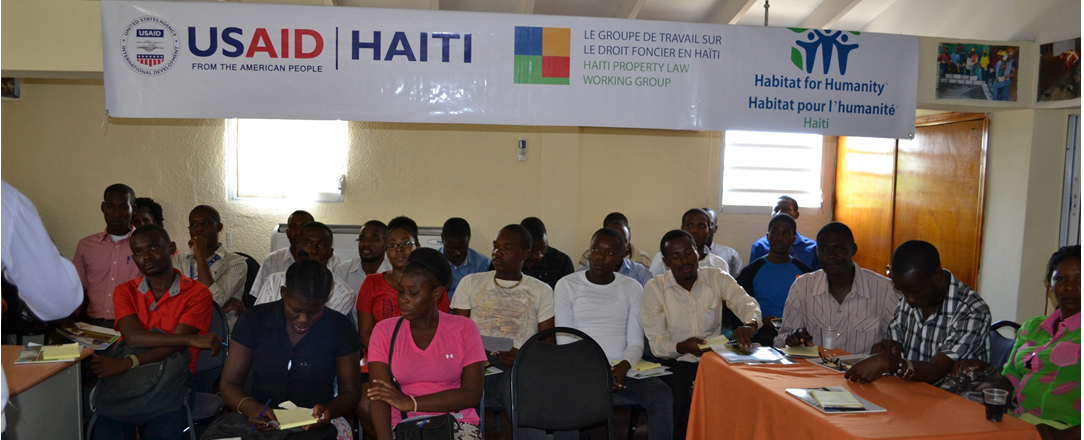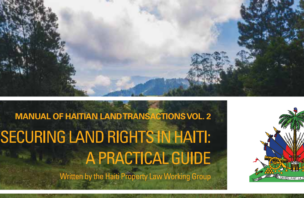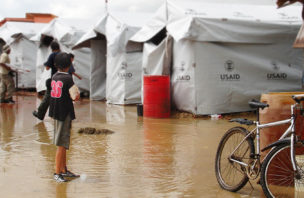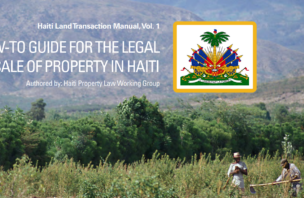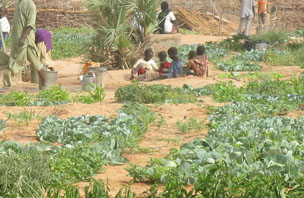The Leveraging Land in Haiti Project will use technology and data, community mapping, and interactive training to strengthen land rights administration and land tenure security in the country.
Background
In Haiti, a complex and ambiguous land tenure system hampers economic and social development. Many families in Haiti are living informally on public lands without access to basic services. Meanwhile, the lack of accurate land registries coupled with complex legal processes lead to difficulties managing land at all levels. Moreover, municipalities have little incentive to provide services to households that pay no taxes or fees on public lands.
Building upon the advocacy and normative efforts of the Land Administration and Management Project (LAMP), USAID/Haiti, Habitat for Humanity and Cadasta Foundation have come together to launch the Leveraging Land in Haiti program.
Objectives
- Address the need for information, evidence, knowledge-based tools, and the sharing of data and lessons learned regarding land rights
- Introduce new technological tools and systems to improve land surveying practices
- Improve land tenure security for households living on public land in three municipalities
- Enhance public awareness of the links between livelihood and land rights
Activities
- Organize six interactive training events through which 200 government officials, community leaders, and development practitioners will learn principles of land management such as the procedures and finances necessary to formally recognize land ownership; how to develop land-based financing systems; and the processes for registering land parcels and populating land registries.
- Conduct participatory mapping of land parcels in three municipalities and work with households in these municipalities to formalize their land rights, increasing tenure security for 12,000 families. The official land administration system will be updated using this data, and the partners will create an action plan for land-based revenue mobilization. These increased revenues to government agencies will in turn be used at least partially to improve services in these areas.
- Assess the impacts of improved tenure security on conflict resolution and domestic resource mobilization. Finally, the partners will roll out a complimentary media campaign to raise public awareness about the importance of land tenure to livelihoods, resilience, and economic growth.


